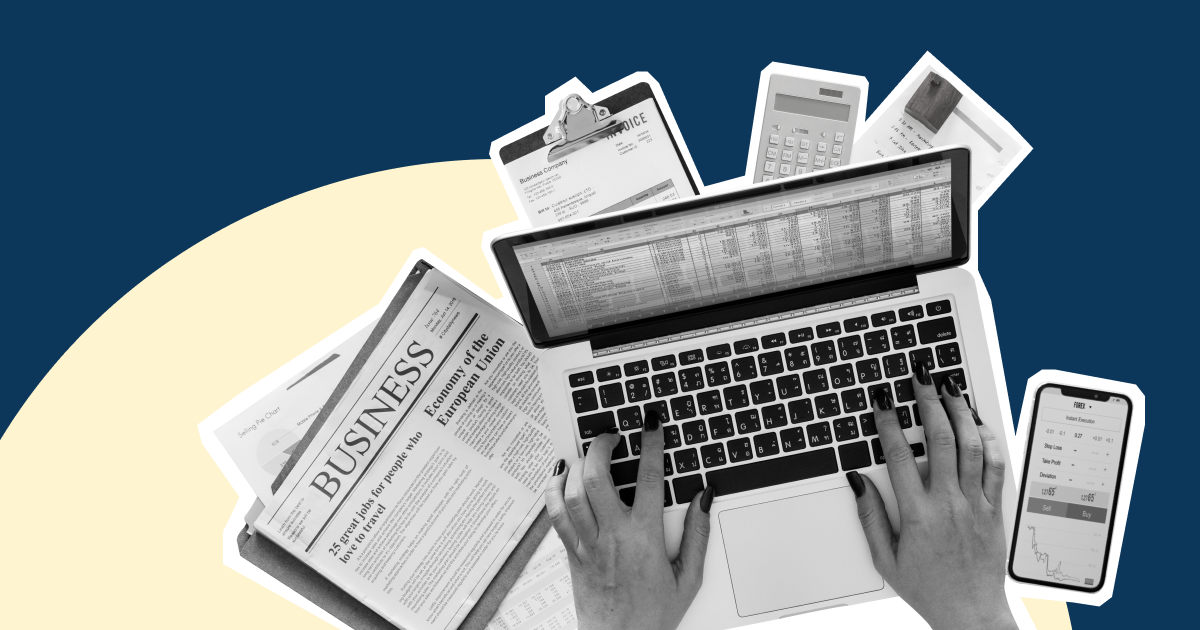Summary
Opening a bank account is one of the first few tasks small business owners need to carry out when getting started in their entrepreneurial journey. However, it can be overwhelming to decide on the various account types available. From current accounts, multi-currency accounts, to money market accounts, the list goes on. But one of the most important ones you need to take note of is a business savings account.
In this article, we’ll be going over why a savings account is essential for every small business and how it can safeguard your finances as you grow your startup.
What is a savings account?
A savings account is a deposit account used to store money while bearing interest at the same time. Generally, the money held in a savings account isn’t immediate funds that need to be used right away. Most business owners have separate accounts for their savings to keep their funds safe and secure and to insulate their business from unforeseen emergencies, all while benefiting from a modest interest rate.
Since certain savings accounts cannot be withdrawn from directly, they are more ideal for long term savings, not disposable income.
Checking account vs. Savings account
Compared to a savings account that is used to store your money in a secure location, the function of a checking account is quite the opposite. A checking account allows users to receive, deposit, and withdraw money for daily transactions. As long as you have sufficient funds in your account, account holders can make various purchases and payments as and when they wish.
Some may use their checking account as their savings account, but it may not be the ideal choice especially if you are a small business owner. Most checking accounts in the market don’t yield interest, which could be a missed opportunity to grow your funds. On top of that, checking accounts typically charge high business account fees to use your own money.
While it is not entirely necessary to have two different accounts, separating your savings and immediate funds can offer more benefits and better results for your small business.
To sum it all up, savings accounts are best for storing money and earning interest while checking accounts are better for making everyday transactions like deposits and withdrawals.

small business bank account
Why do you need a savings account for your small business?
1. Better control over your spending
Some may still not see the value in having separate accounts and choose to open a corporate bank account that serves as both a savings and checking account. But opening a small business account allows for enhanced control over your finances.
Managing expenditure coming in and out of your checking account may be challenging, especially with the day-to-day transactions. By setting money aside in a savings account, small business owners can monitor their expenses more closely and get a better overview of their spending without getting confused by their demand deposits. This also limits access to your cash, preventing unnecessary purchases and rash spending.
2. Protect and secure your money
Compared to their checking account counterparts, business savings accounts generally have an added layer of protection against bank account fraud. Each time you enter your bank account details for various transactions, this increases the risk of your account information being saved on various online platforms and makes it more susceptible to fraudulent activity.
Since a savings account is rarely used for day-to-day business transactions, your funds will be stored securely, leaving you with the peace of mind to run your business with ease.
3. Leverage your interest
As a small business owner, you need all the savings you can get. By leveraging the interest rates offered by savings accounts, you’re essentially making your money work for you. Some may argue that the interest rates offered by savings accounts are generally low. But who wouldn’t want to earn extra cash simply by keeping their money in a savings account?
When choosing a corporate bank account for your business, look into the bank’s available interest rates. Certain banks allow their customers to negotiate higher interest rates if they have high balance accounts.
4. Provide a financial cushion
With seasonal sales cycles and evolving business trends, business owners across all sectors need to prepare for unexpected events that may dampen their business finances. Storing your money in a savings account allows you to have emergency funds at hand without affecting the demand deposits in your checking account.
In the same way that financial experts strongly advise individual households to build an emergency savings fund for unlikely events, this same principle applies to small businesses as well.

Your all-in-one business finance solution, at the palm of your hands
We know that looking for a suitable savings and checking account can be a challenging process. But what if we told you there is a two-in-one solution that can meet all your financial needs?
Designed for startups, SMEs, and small business owners from all walks of life, the Aspire Business Account is your all-in-one solution for your business expenses and savings. Distinguish your savings and business funds with the expense management feature while generating significant savings with low transparent fees. What’s more, Aspire customers can save valuable time with smart features and accounting integrations and put it towards growing their small business.
Begin your journey towards saving with us!










%201.webp)


.webp)